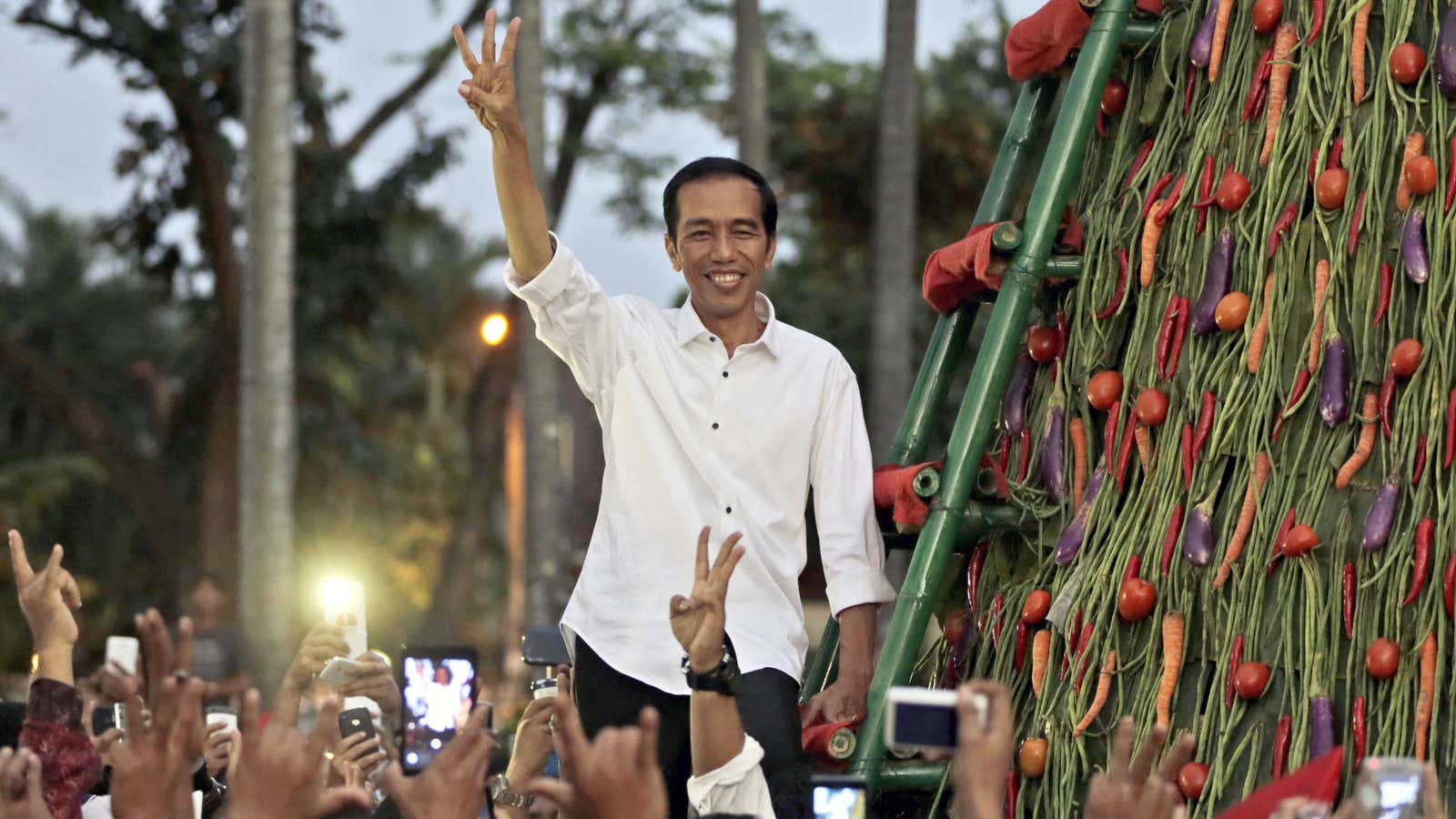There’s a great deal to celebrate in Indonesia’s election. The apparent winner—”apparent” because his opponent may yet challenge the result in the courts—is a popular politician with a record for good governance, and an inspiring rags-to-success story. Joko Widodo, commonly known as Jokowi, has been reassuringly humble in victory, and has committed himself to healing the political rifts exposed during the bitterly-contested vote. If he lives up to the reputation for pragmatism and honesty he earned as governor of Jakarta, the world’s fourth-largest nation will be a happier, more prosperous place for it.
For the rest of us, that ought to be quite enough. But it probably won’t be.
Over the next few days, you will see and hear commentary on how Indonesia’s election is—or should be — an inspiration for all of Islam. It is proof, the commentators will say, that Islam is not antithetical to democracy. This is an old trope, too frequently embraced by Western political leaders, such as David Cameron and Hillary Clinton. Its subtext is not subtle: If only the Arabs could be more like the Indonesians, they too could enjoy the fruits of democracy and nonviolent transfers of power. And the world would be a much more peaceful place.
That view is highly patronizing, of Indonesians, of Arabs and of Muslims in general. It is also just plain wrong.
Indonesia is a democracy, not a “Muslim democracy.” While it happens to boast the largest Muslim population in the world, it is a far, far more complex place than any Arab nation I know: Indonesians are more diverse in ethnicity, language and faith than almost any other country in the world. Its thriving democracy is a testament to the will of its people, not to their faith.
After years of living and traveling in Arab countries, I am not persuaded that people there need the inspiration of a “Muslim democracy,” if such a thing even existed. I was a correspondent in Baghdad in 2004, when the current Indonesian president, Susilo Bambang Yudhoyono, was first elected. Iraq was four months away from its first post-Saddam election. People there looked forward to a chance to cast their votes freely, and there was a great deal of discussion about democracy. I cannot recall a single instance where anybody invoked Indonesia as an inspiration. Nor was there much reference to nearby democracies, like Turkey. Iraqis were already familiar with the mechanics of voting, even though the “elections” under Saddam were pure sham. All they wanted was genuine choice.
Nor do Arabs, or Muslims in general, need proof that Islam and democracy are compatible: the Koran and the Hadith, the compilation of the words and deeds of the Prophet Mohammed, provide plenty of evidence.




